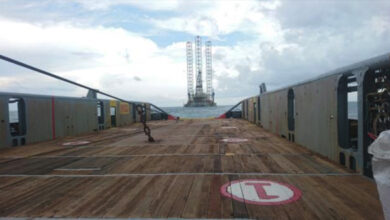Line management accountability key to leading behavioural change
The lesson is simple. To stop incidents and tragedies, be sure that line management bears final responsibility for safety. In other words, they must lead behavioural change.
This starts with leaders becoming role models, said panelist Ali Al-Ghamdi, manager-southern area oil drilling department for Saudi Aramco.
“Workers notice what we do,” he said. “How often do we visit a site without proper protective equipment?” Rules bend when the boss drops by the site, Mr Al-Ghamdi said. “Mandatory” safety briefings may be skipped, for example.
Saudi Aramco is imposing a multi-phase approach to safety leadership, Mr Al-Ghamdi said.
“We have achieved some significant successes,” he said. Elements of the plan include building safety leadership teams, skills training, safety leadership coaching, a process he said could take 3-5 years.
Incentives help. “We should use rewards more than punishments,” he said. “The key to leading behaviour change is accountability.”
Philip Prestridge, drilling operations team leader for ADMA-OPCO, noted that the working relationship between operator ADMA and contractor National Drilling Company is generally smooth. Still, the companies found that the roles of ADMA drilling supervisors and NDC rig managers sometimes blurred. As a result, these key leaders were sometimes unsure of their accountability.
ADMA and NDC ran a series of workshops to define and understand their roles. This involved sharing each company’s vision, team building, working the issues, panel discussions that explored “grey” areas, and management support.
Ultimately, the contractor rig manager understood his accountability for personnel on the rig and for the rig itself. Conversely, the drilling supervisor is responsible for ensuring that the well is delivered on time and to ADMA OPCO’s specifications.




